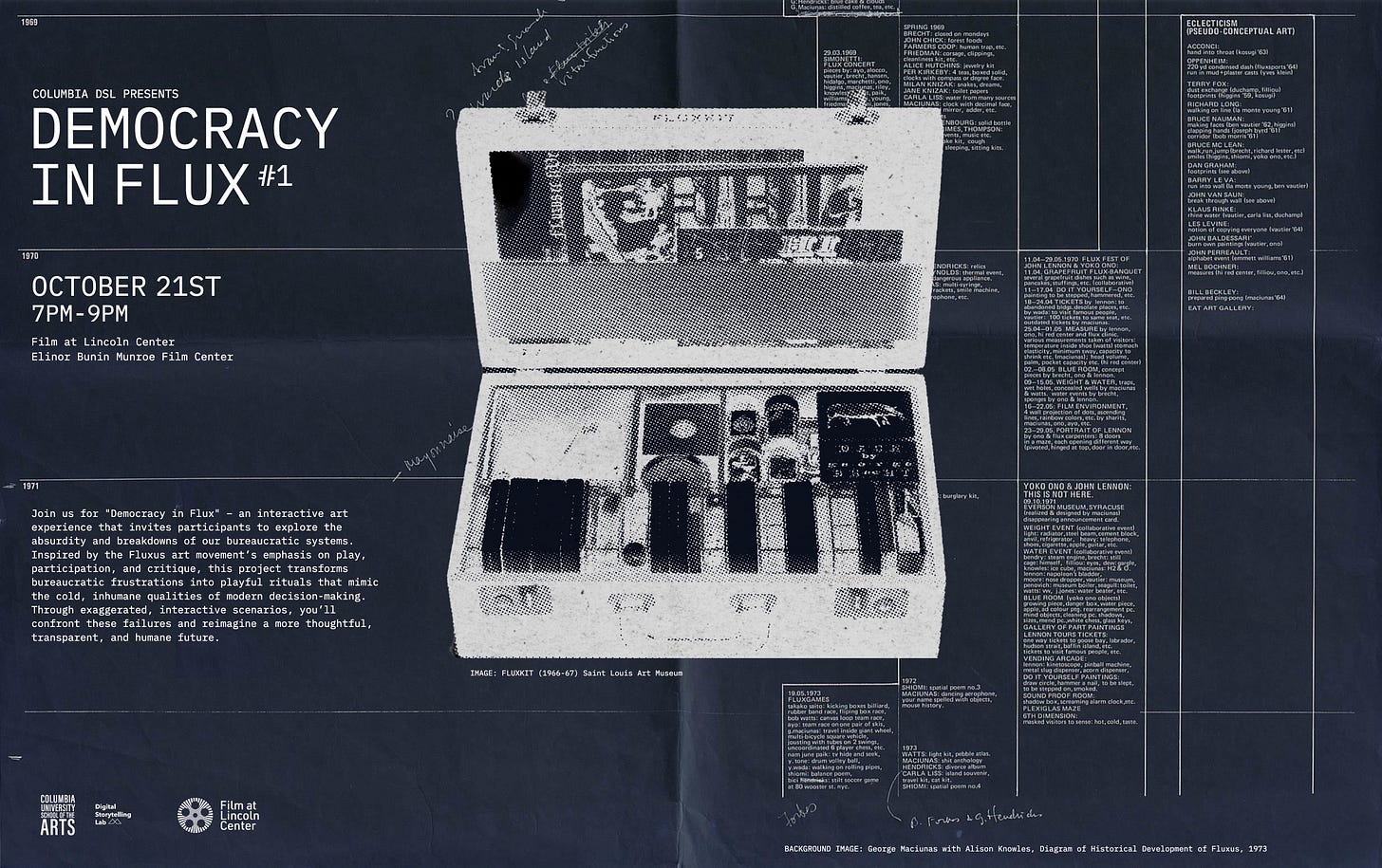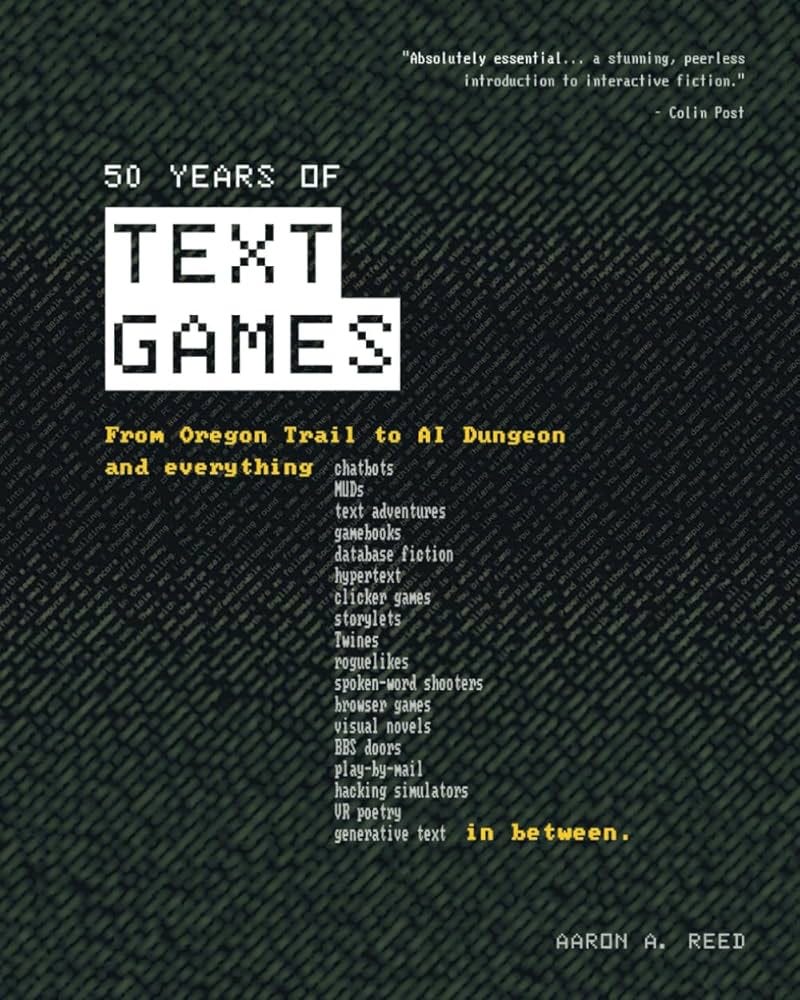Columbia DSL - Newsletter
We're excited to announce a series of workshops and events focused on world-building, generative storytelling and participatory design. At the Columbia Digital Storytelling Lab we design stories for the 21st century, drawing inspiration from creative and research practices spanning the arts, the humanities and technology. With technology as our creative partner, we explore the evolving landscape of storytelling, where the democratization of tools like code, data and algorithms has transformed the relationship between creators and audiences. Join us in this realm of speculation, creativity and collaboration, where new and unexpected stories come to life.
UPCOMING EVENTS
SAVE THE DATE: Breakthroughs in Storytelling Awards
Breakthroughs in Storytelling recognizes signal achievements across the broad spectrum of media that rely on digital technologies, including film, video, journalism, advertising, marketing, games, art, fiction, theater, virtual reality, augmented reality, and experimental narratives.
Breakthroughs in Storytelling Awards - online
Wednesday, November 13th, 6:30pm to 8:30pm Eastern Time
Democracy in Flux: a new prototype from Columbia DSL
Step into a world where art and life intertwine "Democracy in Flux," is an immersive event inspired by the Fluxus art movement of the 1960s. Just as Fluxus artists blurred the lines between creator and audience, we're inviting you to become an active participant in reimagining our democratic systems.
In an era where technology and bureaucracy make democracy feel cold and distant, this event transforms those frustrations into playful, absurd rituals. You'll engage in interactive scenarios that mimic and caricature the inhumane qualities of modern governance—highlighting how arbitrary decisions and power structures can create endless loops of frustration.
We'll be prototyping FluxKits—portable collections of artistic experiments—you'll delve into the heart of these systemic issues. This hands-on experience encourages critical reflection and turns frustration into a catalyst for change.
Monday, October 21st
7pm to 9pm Eastern Time
Film at Lincoln Center -
Elinor Bunin Munroe Film Center
144 W 65th St · New York, NY
WHAT WE’RE READING
In 50 Years of Text Games, Aaron A. Reed takes readers on a fascinating journey through the history of interactive storytelling. The book chronicles a different text-based game for each year between 1971 and 2021, offering a deep dive into how narrative games have evolved over time. From the early days of mainframe experiments like Zork to modern narrative-driven titles, Reed explores the creative, cultural, and technological milestones that have shaped this unique form of storytelling. Each game reflects the changing landscape of digital interaction, highlighting how text games continue to push the boundaries of narrative possibility.
LINKS
This AI Model Can Simulate the PC Game Doom in Real-Time
“We’ve all seen how AI image generators can churn out pictures of whatever you’d like. But what if you took the same technology and applied it to generating stills for a playable game?
Researchers at Google recently used this concept to develop an AI model that’s capable of simulating the 1993 classic PC shooter Doom — but without using computer code from the game itself. Instead, the researchers' model works by pumping out stills for the game like an AI image generator does, except it can do so in real-time at over 20 frames per second for a playable experience.”
Herndon, Dryhurst, and Hobbs on Liquid Images: Three of the world’s leading artists discuss generative art and AI
“In his book, After Art, David Joselit sought “to link the vast image population explosion that occurred in the twentieth century to the breakdown of the ‘era of art’”. The consequence, he argued, was a new kind of “image power [...] derived from networks rather than discrete objects.”¹ Given the growing number of artists developing transmedia practices, art is increasingly becoming a space for border thinking at the intersections of science and technology.”
Models All the Way Down
“If you want to make a really big AI model — the kind that can generate images or do your homework, or build this website, or fake a moon landing — you start by finding a really big training set.
Images and words, harvested by the billions from the internet, material to build the world that your AI model will reflect back to you.
What this training set contains is extremely important. More than any other thing, it will influence what your model can do and how well it does it.
Yet few people in the world have spent the time to look at what these sets that feed their models contain.”
Columbia DSL Newsletter
Get Involved
Join over 1,500 practitioners from around the world working with story, design and code. The Columbia DSL’s prototyping community is place to learn and network. Gain access to resources, working groups, open source code and much more.
Volunteers Wanted
We’re looking for volunteers to help with a new research project focused on bridging physical and virtual experiences. If you’re interested please email us at hello@digitalstorytellinglab.com





